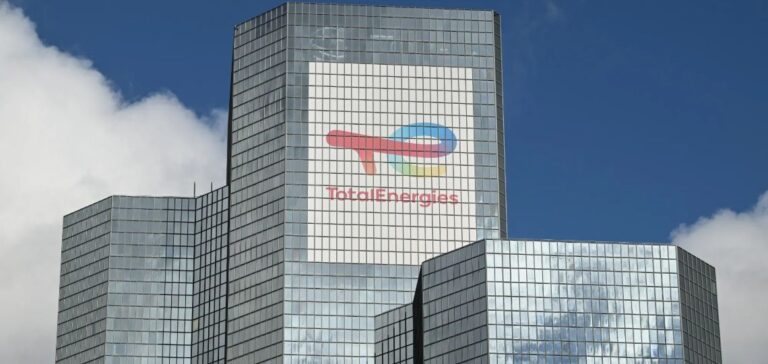TotalEnergies announced on March 18, 2025, that it plans to finalize its green hydrogen supply by the end of 2026. The company has already secured 200,000 tonnes of the 500,000 tonnes required for the decarbonation of its European refineries by 2030. This volume is aimed at reducing CO2 emissions from its operations by 40% by 2030, compared to 2015.
Decarbonation target for European refineries
Green hydrogen, produced through water electrolysis using renewable electricity, will replace the “grey” hydrogen traditionally made from methane in TotalEnergies’ refineries. This process is used to remove sulfur from the fuels produced. The company launched a tender in September 2023 to secure 500,000 tonnes of green hydrogen, an initiative aimed at structuring an emerging industrial sector.
Jean-Marc Durand, Director of Refining and Petrochemicals Europe at TotalEnergies, explained that the tender has attracted significant attention, with over 100 stakeholders approached and 50 proposals received, totaling 5 million tonnes of green hydrogen. This far exceeds the company’s target of 500,000 tonnes, with 30% of the proposals coming from Europe and 70% from the rest of the world.
Diversification strategy for supply sources
TotalEnergies has opted for two main sources for the 200,000 tonnes of green hydrogen already secured: 130,000 tonnes will come from local production through water electrolysis, and 70,000 tonnes will be imported. According to Jean-Marc Durand, the prices of both options are comparable, at about three times the cost of traditional grey hydrogen produced in Europe.
The company plans to finalize the supply of the remaining 300,000 tonnes by the end of 2026. This initiative is part of TotalEnergies’ strategy to reduce its CO2 emissions, particularly in its six European refineries: Antwerp (Belgium), Leuna (Germany), Zeeland (Netherlands), Normandy (France), Donges and Feyzin (France), as well as its two French biorefineries in La Mède and Grandpuits.






















